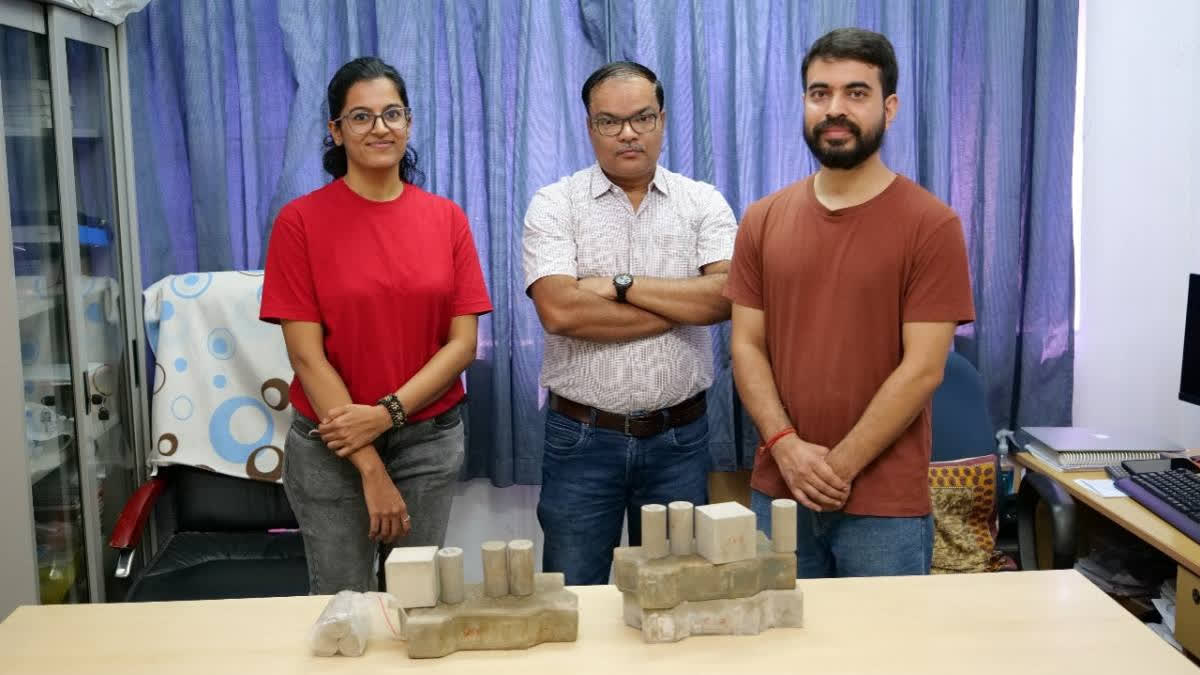Guwahati: The Indian Institute of Technology Guwahati (IITG) has developed an innovative solution to two major global challenges--industrial waste management and sustainable construction.
A research team at IITG led by Prof. Anil K. Mishra from the Department of Civil Engineering has developed a geopolymer using industrial byproducts and waste materials, such as water treatment sludge (WTS), fly ash (FA), and ground granulated blast furnace slag (GGBS).
"Our research provides a solution by converting WTS and industrial byproducts like fly ash and GGBS into a geopolymer. Geopolymers are renowned for their high strength, durability, and minimal environmental impact. Through the process of geopolymerisation, silicon and aluminium from these materials react with alkaline activators to form a three-dimensional alumino-silicate structure. This results in a material that matches traditional cement in performance while significantly reducing carbon emissions and energy consumption," Prof. Mishra said while speaking on the research.
The findings of this study were published in the prestigious journal Construction and Building Materials, co-authored by Prof. Anil K. Mishra and his research scholars Alok Bijalwan and Bitupan Sonowal from IIT Guwahati.
He explained that one of the key applications of the WTS-FA-GGBS geopolymer is in road construction. The research team evaluated the mechanical properties of the geopolymer, specifically its suitability as a subgrade material for roads and pavements. The subgrade layer forms the foundation of roads, determining the pavement's strength and longevity. Using the WTS-based geopolymer as a stabilizer was found to significantly enhance road performance, particularly in soft or weak soils, he explained.
In addition to WTS, the team is also focused on geopolymerisation construction and demolition (C&D) waste, which exceeds 10 billion tons annually and constitutes over 35 per cent of global waste. They have developed applications for C&D waste, including base and subbase layers for road pavements and paver blocks, contributing to effective waste management and reduced environmental impact.
